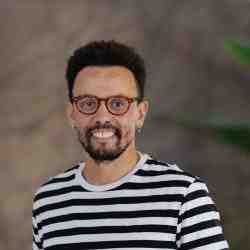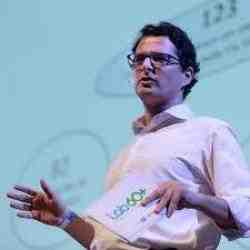Introdução
Ruth Gelehrter da Costa Lopes, a São Paulo social psychologist, has started Brazil's first public psychological clinic for the elderly, a burgeoning population ignored by Brazilian professionals and institutions.
A nova ideia
Brazil's rapidly growing number of elderly face the psychologically difficult transition of aging in a society that is going through rapid, profound, and often painful change. Little they know seems still there. Yet, except for the wealthy few, there is no access whatever to psychological help.Ruth is attacking this deficit on two fronts--developing new, economical ways of providing the sort of help that can help most older people, and also stimulating researchers and professionals from various disciplines to work with the elderly.She's begun evolving and demonstrating her approach at a public clinic she runs at the Catholic University in Sao Paulo. This approach rests on a pair of core principles.First, the clinics rely heavily on group therapy. Ruth finds her clients respond especially well, perhaps drawing strength and comfort from such organized contact with their peers. They enjoy the comradeship of discussing together the many upheavals they have lived through. It also helps de-mystify and, for some, de-stigmatize any connection with psychology. Group therapy, along with paraprofessional facilitation, is also the most economical large-scale access service.Second, she's developing a counseling program designed to help older people live fuller, more involved lives rather than to help them prepare for death. Her approach seeks to build on their strengths rather than attend to illness.
O problema
Some projections show Brazil will have the world's sixth largest elderly population within 20 years. An aging population in Brazil seems unimaginable to policy-makers and a public long accustomed to thinking of Brazil as one of the world's youngest populations. The country is totally unprepared for the demographic shock waves that already have begun.At the same time, rapid urbanization has profoundly disrupted Brazilian social and family structures. The traditional Brazilian family and community have been greatly weakened and are no longer able to offer elders the emotional or material support networks of bygone generations. In addition, a sense of place becomes hard to maintain as landmarks tumble and give way to high-rises or slums. Even Brazil's political transition and economic crises can intensify feelings that life is careening through uncharted territory.Yet there is effectively nowhere for older Brazilians to turn for professional counseling to help them adjust. Given Brazil's strained economic situation, public spending on elder psychological care will likely remain a low budget priority for years to come, despite their growing weight as a significant portion of the Brazilian population. Individually and collectively they are relatively unaware and unskilled politically. Consequently both public and private institutions have ignored them and their need for psychological counseling.
A estratégia
Ruth Lopes's strategy has several complementary dimensions. First, she's trying to develop economic approaches to helping older Brazilians adjust psychologically to a vigorous "third age." Second, she's trying to stimulate more gerontological research and practice among academics, professionals, and lay groups.Ruth has built her initial base at the university, but she's not a typical academic: she prefers working with people, their life histories and communities, rather than statistics. "I don't embody the modern intellectual teacher," she says.Nonetheless, she's won space and recognition for her work and approach. Although academically junior, several years ago she founded the Nucleus for Studies of the Third Age, a focal point for those concerned with older people. It encourages cross-specialty and community work, organizes community lectures and services, runs an information exchange, and provides moral support for anyone seeking to help older people.What she learned from this direct contact did not connect with what little literature she could find on the elderly in Portuguese. The cardboard characters of the books certainly didn't speak about their sex lives and life plans, as her clients did. Her clients taught her to tap their healthy, positive attitudes and not dwell on sorrow, fear, or pain.As her alternative idea of how to serve the elderly crystallized, she decided she needed to try it out. She gathered her arguments and courage, and proposed a new program for the university. The new director surprised her by readily agreeing to the experiment. Placing a notice in a free local shopping paper, she immediately demonstrated the latent demand for such a service. The clinic quickly started five therapy groups, and she promptly attracted mature assistants, including a number who had lost a parent in a painful way. She's now made enough progress that she's devoting increasing time to spreading her ideas, reaching out from the community level to government policy-makers.
A pessoa
Ruth saw her own father go through old age discouraged. When she was seven, he brought her and her mother to Brazil, fleeing upheaval in his native Portugal. It was not the family's first flight from danger. As a girl, her mother escaped Germany with her Jewish family. She met Ruth's father in Angola, where Ruth was born and reared until revolution broke out and sent them to Portugal, only to be dislocated again by social turmoil.She took part in student activism as an undergraduate stirred by the military period, but rejected violence in resisting the dictatorship. After receiving her bachelor's degree, Ruth taught psychology at the university while studying at the graduate school. At about that time, she often took her two young sons to a neighborhood park, where she observed and talked with older people. She learned that the only facilities available for them were recreational, and the idea of helping them through her own profession germinated.




